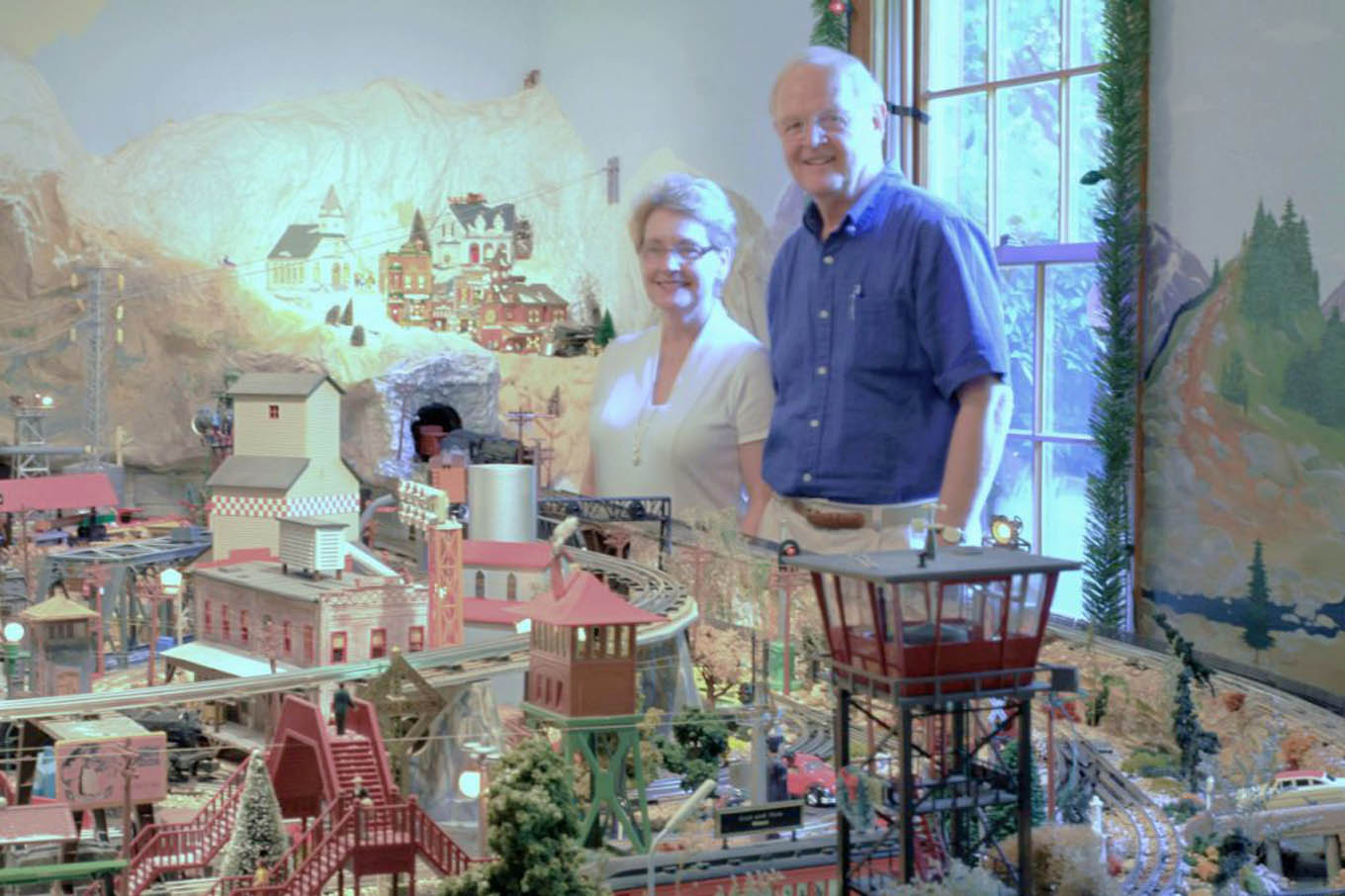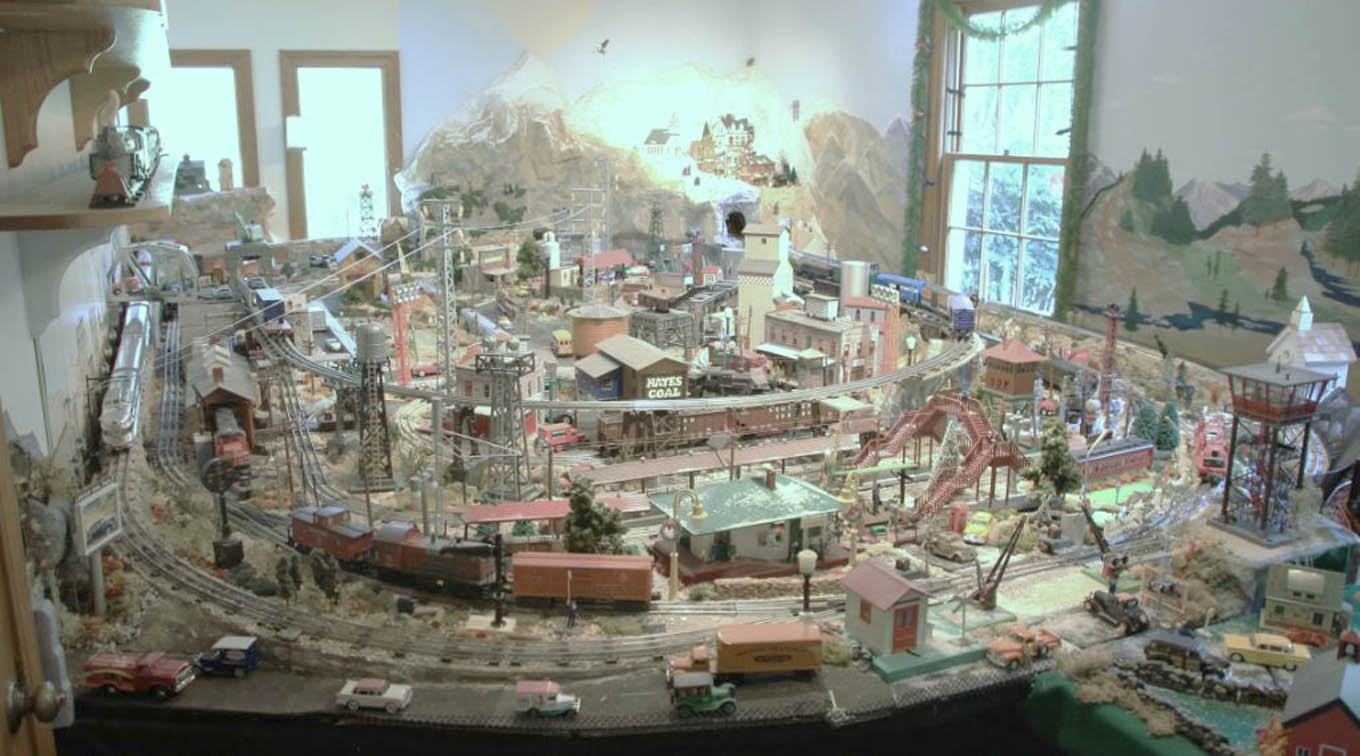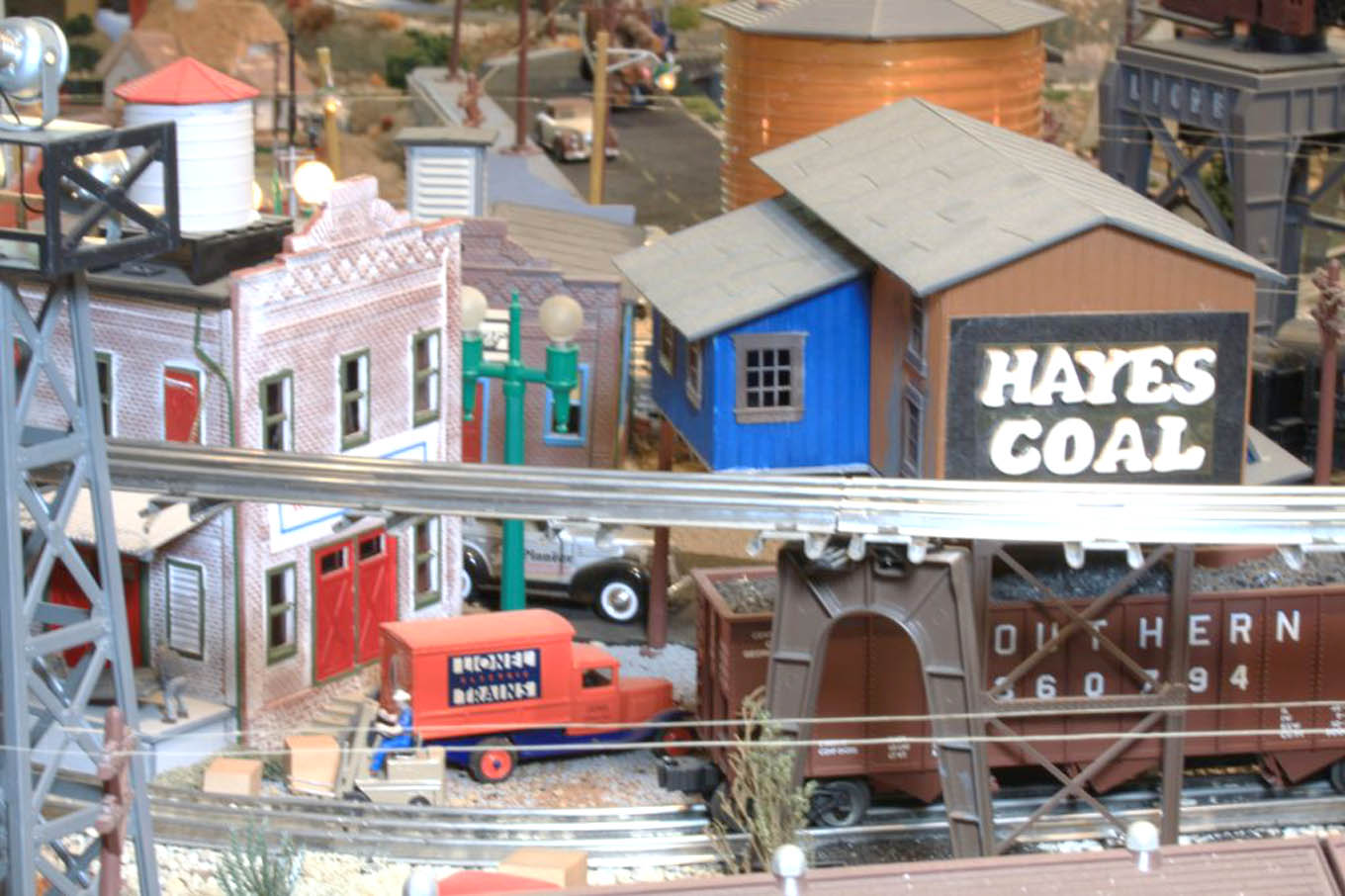
College News
CCCC Foundation will host specialty train auction
09.27.2016 • College & Community, College General, Foundation
SANFORD - Richard Hayes has long had a special love of model trains, dating back to his childhood. He's also been an advocate of preserving the environment.
Hayes has donated his model train collection to the Central Carolina Community College Foundation for the establishment of the Richard and Rebecca Hayes Endowed Lecture Fund for Environmental Policy and Stewardship.
"My family has been interested in and an advocate for the preservation of our environment for the past 30 years," said Hayes. "We hope that through this endowment, an annual public lecture will be possible at CCCC, to both students and citizens of our community, to provide them with the very best and the very latest science information relating to what is happening to our planet because of global warming; and more importantly, what measures can be and should be taken, by each of us and all of us, to protect and preserve our precious water, soil, and air and the lives both human and animal they support."
The CCCC Foundation will auction the valuable training collection at 9 a.m. Saturday, Oct. 29, at the Dennis A. Wicker Civic Center in Sanford. The proceeds will be used for the sustainable speaker series in honor of Mr. and Mrs. Hayes.
The collection of O gauge trains includes locomotives, rolling stock, track, switches, working accessories, and O gauge scale buildings and houses. The great majority of the collection was made by the world-famous Lionel Corporation, whose products are highly prized, valued, and collected by an international following. Additionally, there are some pieces by K-Line, Mike's Train House, and Marx, as well. All pieces are post-war pieces, with the newest ones added in the late 1990s and early 2000s.
While the Hayes' collection covers a broad spectrum of famous national railroads that Lionel was known for, as a native of Lee County he took a particular interest in collecting pieces that reflected local railroads -- the Seaboard Air Line, the Southern Railway, and the Atlantic Coast Line Railroad. Local train enthusiasts, collectors, and enthusiasts will therefore be offered the non-typical opportunity to bid on and purchase locomotives and rolling stock depicting these railroads from the South. Diesel engines from the Atlantic Coast Line, Southern, and Seaboard will be auctioned, plus the "crown jewel" of the collection -- a 2-8-2 Mikado steam locomotive in Southern Railway green.
Hayes got his first train set for Christmas in 1944. "I was six years old. It was a simple Marx train set," said Hayes. "Santa never confided in me, but that first, dear train set probably cost all of $12. That was a lot of money for Santa Claus back then, and especially for the child from a working, middle-class family.
"I got my second train set at 10 years old and recall the preordained love affair with it which started when I spotted it in the Christmas decorated window of Efird's Department Store," said Hayes. "Magically, with the help of my middle brother Robert, who worked that Christmas during school holiday at Efird's, a train just like that one appeared under my family's Christmas tree on Dec. 25, 1948. Shazam! The world has never been the same! It was a gorgeous, smoking Lionel freight train, with a whistle, which I still have and display, proudly, on the mantle in our den at home -- and it still runs beautifully."
Hayes notes that he was hooked on trains, real and model trains, because Sanford was a railroad town when he was growing up. "Sanford was founded as a railroad commerce point in 1874 and grew to be eventually served by four railroads from the late 1800s through the 1950s, including the Atlantic Coast Line, the Southern and the Seaboard Airlines RR, the major north-south bound passenger service which served local civilian passengers as well as military passengers from Fort Bragg during World War II," said Hayes.
"In fact, when I was six years old there were 17 passenger trains that came through Sanford daily with many 'locals' stopping here. The passenger railroad and freight business was booming here in 1945; 'locals' rode the trains to and from Sanford on short and long distant trips across the nation. Here in Sanford we received much of our postal mail and Railway Express freight and packages by rail, and we shipped manufactured goods and some produce in and out of Sanford," said Hayes.
Hayes' father and mother owned and operated a small coal company during World War II, beside a flour milling company and across the street from the General Foundry. "I lived and played there every day after school in the safe company of my mother, who ran the office," said Hayes, adding that he played on and around the local short line railroad that was directly across the track, the Atlantic and Western Railroad. "I saw those big metal behemoths coaling up regularly beside the tracks and as they raced up and down the tracks delivering coal cars to my dad's business, but also to the industrial base of Sanford routinely," said Hayes.
"I could never forget and have fond memories of the coal smoke, the smell of oil and grease in the train yard where the locomotives were maintained and slept at night, four of them. So, you can understand how impressionable all of this was for me, like Opie's charmed adolescence in Mayberry, with real trains, including locomotives and later diesel locomotives whistling and striking their bells, and echoing those lovely diesel horns which sounded like fog horns day and night. Those sights and sounds reinforced my passion for trains of every kind, experiences that came natural as I transferred them into my own model train world of reality and imagination."
Hayes began serious train collecting in 1991 when his family moved back to Sanford after 30 years of his work career having taken him all over the country. "So in Sanford, our final move, my wife was very supportive of allowing me to devote one side of a two-car garage in our new home making it into a model train layout room, which I had wanted to do and talked about for many years," said Hayes. "Therefore, during the '90s, for the first time in my life, I could finally afford to purchase a few nice model Lionel trains I had always hoped to own since I was a boy. I found them in hobby shops in large cities on the East Coast as I traveled and worked the final decade of my career."
Hayes' train layout took two years to build on weekends as he traveled during the week. "My train layout ... I fashioned after both the downtown Sanford train station and Hayes Coal Company and train yard environs, to an imagined rural country side and farm scenes traversed by the trains, turning into a mountain section with tunnels and bridges for the trains to negotiate," said Hayes. "My favorite part of the layout was the attempted simulation of the Sanford railroad yard and depot, which I enjoyed as a child growing up in Sanford. I worked and built the train collection and layout during the '90s and when I retired about 2000, I just enjoyed looking at it and running those trains, as many as four simultaneously.
"Friends and neighbors, especially children, loved to be invited in for the train show, especially during December leading up to Christmas. I never lost my love for Christmas and the thrill of Santa, the snow real and imagined, and my first train encircling my family's Christmas tree at my family home on Gulf Street."
Emily Hare, Executive Director of the CCCC Foundation, said the Foundation is grateful for the Hayes donation. "The Foundation appreciates Richard and Rebecca Hayes' generous donation, which will be used to for the sustainable speaker series," said Hare. "We are hopeful that the auction will be a great success in bringing honor to this donation."
CCCC President Dr. T. Eston Marchant said the college is thankful for friends like Richard and Rebecca Hayes. "We are grateful to Mr. and Mrs. Hayes for their contributions to the college and to the community," he said.
The CCCC Foundation is a 501(c)(3) charitable organization affiliated with, but independent of, Central Carolina Community College. It receives donations of money and equipment on behalf of the college and uses them to promote its educational mission and assist students through scholarships and grants.
For more information about the Foundation, its work and events, visit www.cccc.edu/foundation/. For more information about classes and programs at Central Carolina Community College, visit www.cccc.edu.

Richard Hayes, pictured with his wife Rebecca, has donated his model train collection to the Central Carolina Community College Foundation for the establishment of the Richard and Rebecca Hayes Endowed Lecture Fund for Environmental Policy and Stewardship.

Richard Hayes began serious train collecting in 1991 when his family moved back to Sanford after 30 years of his work career having taken him all over the country.

Richard Hayes' train layout took two years to build on weekends as he traveled during the week. 'My train layout ... I fashioned after both the downtown Sanford train station and Hayes Coal Company and train yard environs, to an imagined rural country side and farm scenes traversed by the trains, turning into a mountain section with tunnels and bridges for the trains to negotiate,' said Hayes.
- Central Carolina Community College
- Serving Chatham, Harnett, & Lee Counties, NC
- 1-800-682-8353



